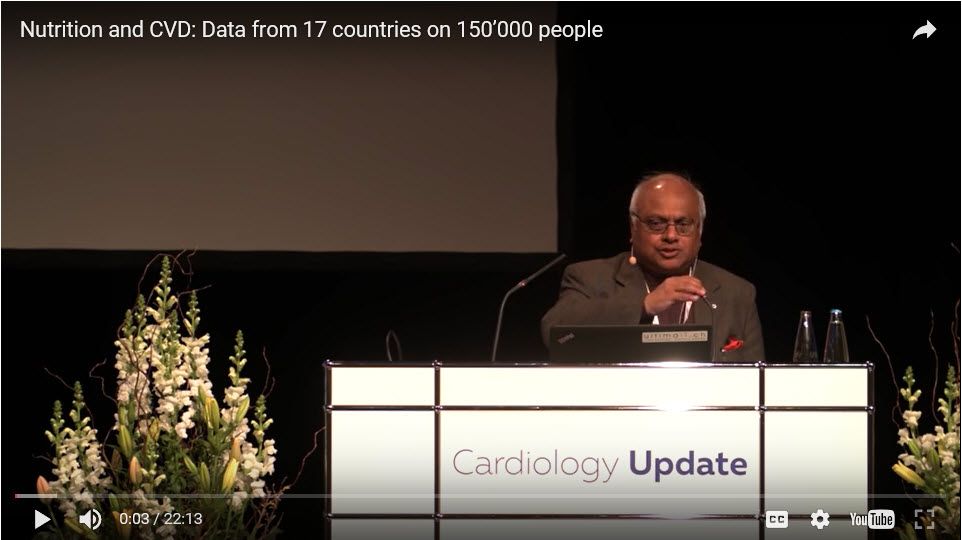Top Cardiologist Blasts Nutrition Guidelines

–Salim Yusuf says new evidence fails to support many major diet recommendations.
One of the world’s top cardiologists says that many of the major nutrition guidelines have no good basis in science.
“I’m not a nutrition scientist and that may be an advantage because every week in the newspaper we read something is good for you and the same thing the next week is bad for you,” said Salim Yusuf, MD, DPhil,(McMaster University), at Cardiology Update 2017, a symposium presented by the European Society of Cardiology and the Zurich Heart House.
Yusuf presented evidence that many of the most significant and impactful nutrition recommendations regarding dietary fats, salt, carbohydrates, and even vegetables are not supported by evidence.
Yusuf’s talk relied heavily on findings from the PURE study, a large ongoing epidemiological study of 140,000 people in 17 countries. Though PURE is an observational study, “its design and extensive data collection are geared toward addressing major questions on causation and development of the underlying determinants of cardiovascular disease.”
Much of the data presented by Yusuf has not been published yet and should be considered preliminary, he said. In 2014 publication of the sodium results stirred considerable controversy.
The results from PURE will likely add fuel to the ongoing fiery debate over carbohydrates and fats. Yusuf displayed data showing that the incidence of cardiovascular disease in the PURE population increases as carbohydrate intake (as a percentage of total calories) rises.
“Previous guidelines said reduce fats and compensate for it by increasing carbohydrates … and so essentially we’ve increased carbohydrate intake in most Western countries and this is likely damaging. We were in for a big surprise. We actually found that increasing fats was protective.”
The PURE data show a steep increase in CV risk as carbohydrate intake increased beyond 55% of total energy. WHO guidelines state that up to 75% of energy can come from carbohydrates. “But that is wrong,” said Yusuf.
Read rest of article here